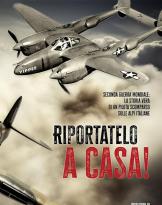Louis-Ferdinand Celine
Ed. Adelphi, Milan, 2023
pp. 156
This work by Louis-Ferdinand Céline emerges decisively from the past: sixty years after the writer's death, thanks to a discovery, together with other notes, papers and unpublished manuscripts (which were stolen from his apartment during the liberation of Paris in 1944), here appears this novel, in first draft, sketchy, but already very well outlined in all its articulations.
Céline, whose real name was Louis Ferdinand Auguste Destouches (born in Courbevoie on 27 May 1894 and died in Meudon on 1961 July XNUMX) linked his name to numerous important literary works, including Journey to the End of the Night, Journey to the End of the Night (1932), his debut, to which War connects. A tormented writer, essayist and doctor, he enlisted in 1912, at just eighteen years old, as a volunteer in the French army at the time of the outbreak of the World War I – an experience that will mark him for life and which he will return to in several of his writings.
Under the orders of General Philippe Pétain, part of an infantry regiment, he served at the front between 1914 and 1915, obtaining two important decorations and taking part in the fighting on the River Lys and near the Belgian town of Ypres in Western Flanders, being wounded in the right arm and head, an event that earned him discharge in 1915 - in addition to the surgical operations he had to undergo and the therapy courses, the wounds resulted in several permanent difficulties that worsened over the years.
Many of those who commented War they reported the following sentence that Céline makes Ferdinand, the protagonist of the story, in some way his alter-ego, utter: “I got the war in my head. I've got it locked in my head." (p. 26), a phrase that well represents, symbolically but not only, the permanent, physical and psychological damage that Céline suffered by participating in a mission on 27 October 1914 in Poelkapelle.
The interest that this partially autobiographical writing arouses is greatest in its first part (considered very close to the true war experience lived by the writer) which, in fact, begins with the scene in which the protagonist of the story regains consciousness in the midst of a sea of corpses after being caught in an explosion. In these pages we see the harbingers of what would later be classified as post-traumatic stress (Post Traumatic Stress Disorder - PTSD). In the moments following Céline's regaining consciousness, he describes the difficulties of regaining contact with the world, and the near impossibility of formulating a logical thought, while Ferdinand gets up and laboriously goes in search of pieces and scraps of food, rummaging through mud and blood. , and in the coats of the dead.
A second picture, so to speak, represents the protagonist's meeting with a British soldier: a man met by chance and who lends aid to Ferdinand, who is finally taken on a long tour of hospitals where, at the beginning, the great concern of do not show up dying for fear of being taken directly to the rooms where the corpses or the soldiers for whom there is no longer any hope lie.
The meeting with the British soldier can be seen as a sort of bridge, a passage from the condition of an unfortunate person on the limit between life and death, to a person hopeful in reaching a place where - but nothing is certain - one can be welcomed and take care of yourself. And, in fact, even in hospital rooms events occur that can be defined as at least disturbing, and one cannot automatically trust (or rely on) nurses and doctors, but one must remain vigilant: in some way, I would say, one must monitor the own body and monitor what others would like to do with the body…
From the war experience - and from the traces that this experience left in the writer's soul and in several of his works - Céline will develop his very critical political-social vision, composed of hints of pacifism but also of anti-Semitism, to the point of compromising himself with Vicky's regime and to be exiled from France for collaborationism and anti-Semitism.
Having returned to France at the beginning of the 1950s, he dedicated himself to the care of the sick as a doctor, and continued to write, perhaps also in an attempt to rework and in some way digest what he had described-narrated with such harsh, dry, violent words: words that leave no escape.
Anyone wishing to delve deeper into Céline's work will find in Italian translation not only stories and essays but also epistolaries.
Andrea Castiello d'Antonio












